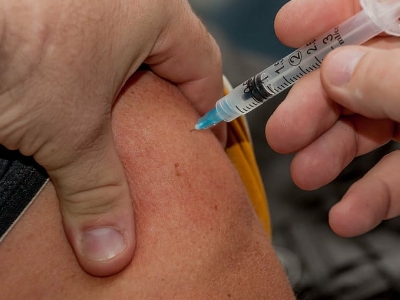Importance of Immunization

Immunization is a process by which a person becomes protected against a disease through vaccination. Protection by immunization is similar to the immunity a person would get from disease, however, instead of getting the disease you get a vaccine to build your immunity.
Why is Immunization Important?
Vaccinations not only protect your child from deadly diseases, such as polio, tetanus, and diphtheria, but they also keep other children safe by eliminating or greatly decreasing dangerous diseases that used to spread from child to child. Infectious diseases can be prevented by immunization for yourself, your children, and future generations. Immunization helps wipe out diseases that could spread now and into the future.
How Many Shots Do Children Need?
- Children at the age of 2 must have the following immunization shots:
- One vaccination for measles, mumps, and rubella
- Three vaccinations for hepatitis B
- One vaccination for varicella or chicken pox (must be verified by doctors)
- Three vaccinations for rotavirus
- Four vaccinations for pneumococcal disease
- Four vaccinations for Haemophilus influenza
- Three to four polio vaccinations
- Four vaccinations for diphtheria, tetanus, and pertussis
Five Important Reasons to Vaccinate Your Child

- Immunizations can save your child’s life. More diseases can now be prevented thanks to advances in medical science. Diseases that once caused thousands of children to suffer injuries or deaths have been completely eradicated, while others are on the verge of extinction.
- Immunization protects others you care about. Children are safer when they are fully immunized, so make sure you and your children are fully immunized. You and your family will be protected, and your friends and family will be protected as well.
- Immunizations can save time and money. Some vaccine-preventable diseases can save you from prolonged disabilities and prevent from taking a toll on your finances because of lost time at work, medical bills, or long-term disability care. In contrast, getting vaccinated against these diseases is a good investment and usually covered by insurance.
- Vaccination is very safe and effective. Science, doctors, and healthcare professionals carefully review vaccines before giving them to children. Injections may cause some discomfort and may cause some pain, redness, or tenderness at the injection site, but this is minimal compared to the pain, discomfort, and trauma caused by diseases these vaccines prevent.
- Immunization protects future generations. Vaccines have significantly reduced and, in some cases, eliminated many diseases that killed or severely disabled people just a few generations ago. As a result of vaccination, this virus has dramatically decreased, and there are no longer birth defects associated with it in the United States.
Final Tips on Immunizations
- Discuss the benefits and side effects with your doctor. You can also ask your doctor about the possible side effects that may occur after immunization.
- Ask your doctor’s office if it participates in an immunization registry for references in case of lost records.
- Be informed on the dates of immunization to avoid missed shots.
- Always bring your immunization record to keep updated.



